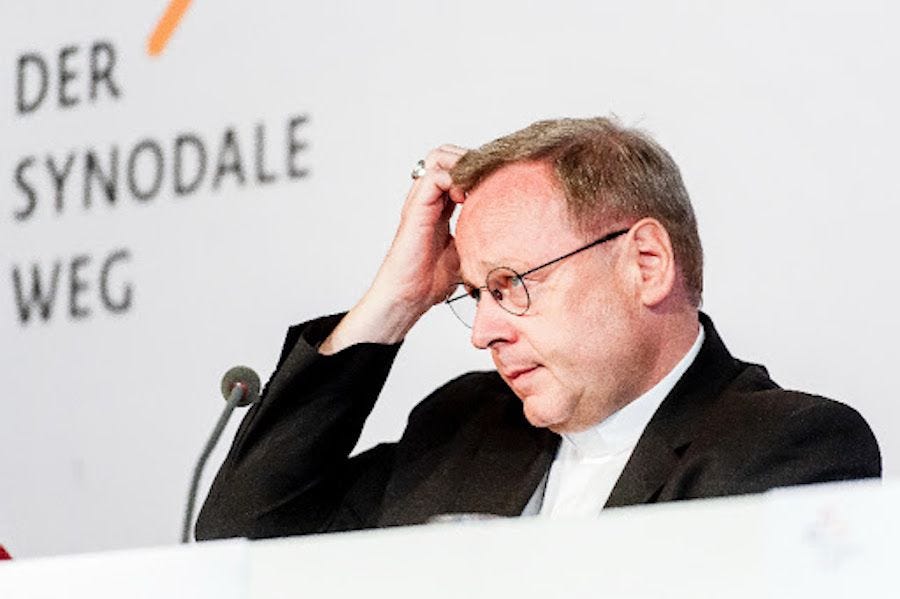German bishops’ leader wants ‘common line’ on same-sex blessings ahead of synodal way vote
Bishop Georg Bätzing is expected to call for “a common line in favor of blessing ceremonies for same-sex couples” when German bishops next meet.

When the German bishops’ conference meets next week, the group’s chairman will aim to see the country’s bishops support the prospect of liturgical blessings for same-sex couples, according to local media.
The German Catholic news agency KNA reported Thursday that Bishop Georg Bätzing will call for “a common line in favor of blessing ceremonies for same-s…
